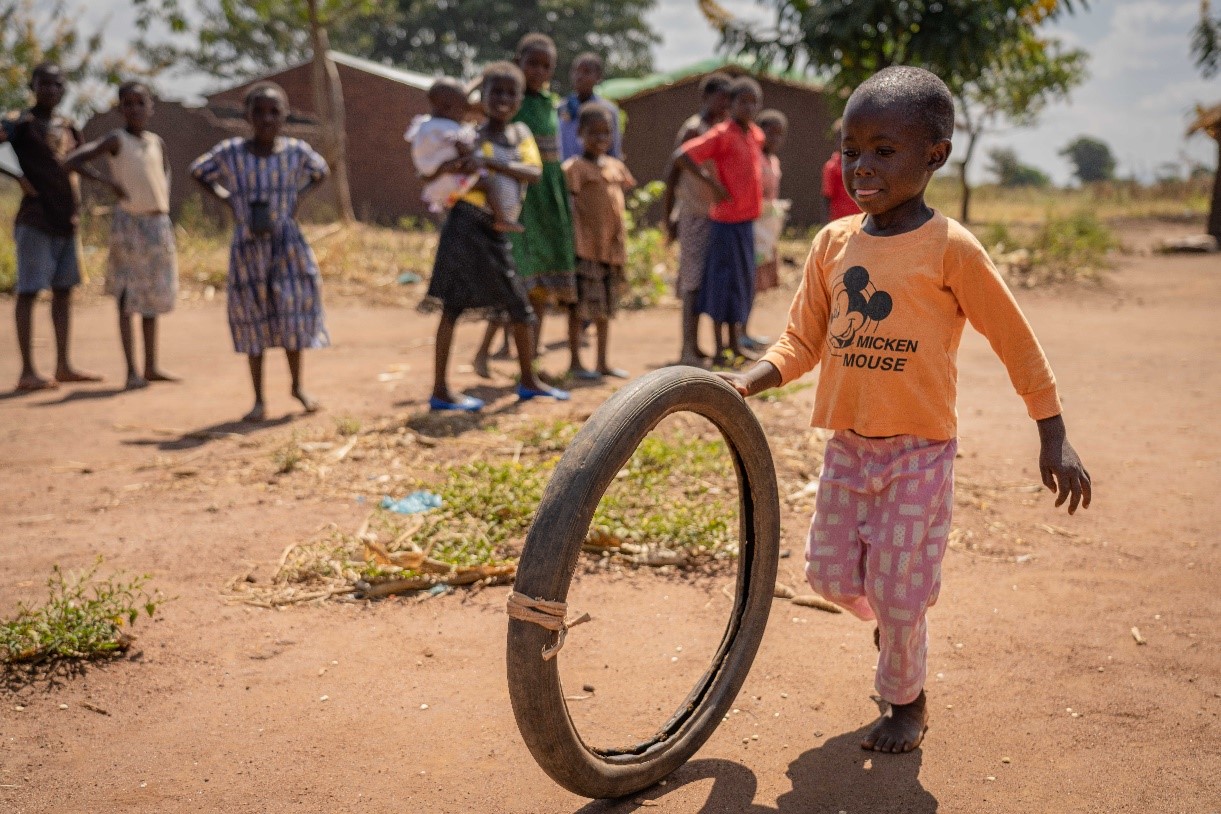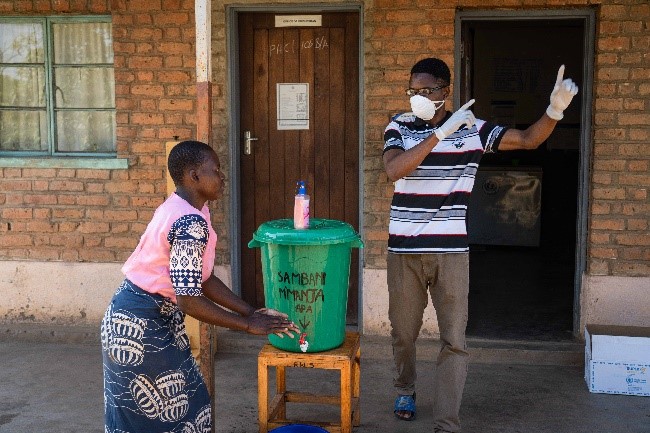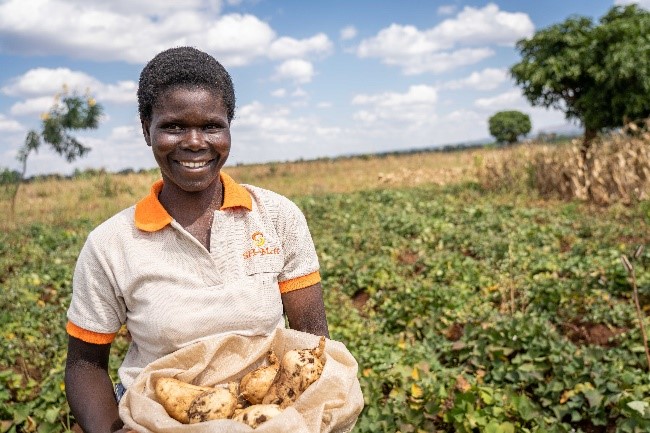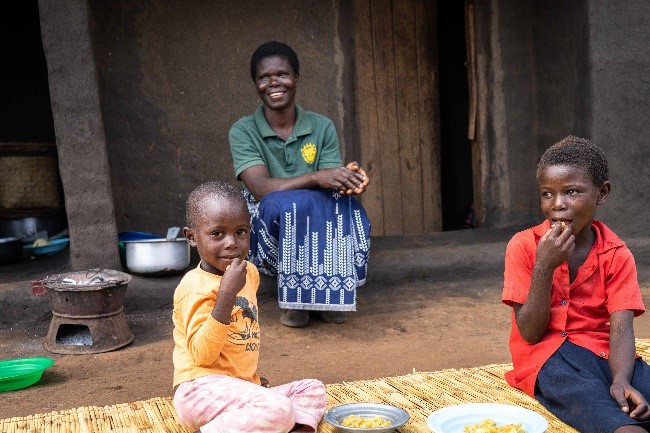Ireland and WFP: Tackling malnutrition using local solutions in the wake of Covid-19
News
21 May 2020
Chrispine, who was once malnourished, is now back on path to a promising future thanks to support from WFP and Irish Aid. Photo: WFP/Badre Bahaji
“While my child, Chrispine, was being treated for malnutrition at the hospital, I received orange flesh potato vines which I planted the same year. The potato is very rich in vitamin A and I feed my children and the entire family to stay healthy,” says Dorica Samson, 38, from Nambirikira Village in Dedza District, Malawi.
In 2017, at two years old, Chrispine continued to solely feed on breast milk and refused to eat other foods. After falling sick he was admitted at Mtendere Community Hospital for supplementary feeding provided by government in collaboration with World Food Programme with support from the Government of Ireland - where he received a nutrition support to put him back on track.

William Magombo ensures all patients he attends to observe COVID-19 prevention measures. Photo: WFP/Badre Bahaji
William Magombo, a Health surveillance assistant at Mtendere Community Hospital, has seen many stories like Dorica’s.
“We have been raising awareness with pregnant and breastfeeding women on nutrition and healthy diets” says William. “However, to sustain them on the path to recovery, we train them to grow and prepare locally available foods such as the orange fleshed sweet potato, beans, groundnuts and other.”
Usually, when children fall sick with malnutrition in Malawi, they are taken to a health centre to receive a food supplement called Super Cereal Plus, a nutrient-rich, high-energy dense porridge flour. But sometimes there are other underlying issues, and some children fall sick again.
While her son was being treated, Dorica was involved in a programme led by United Purpose also supported by the Government of Ireland to learn how to grow and prepare nutritious food for her family through health and nutrition sessions conducted by health surveillance personnel. Dorica also received orange fleshed sweet potato vines which she later planted.

Dorica’s family has benefitted from the sweet potato rich in Vitamin A. Photo: WFP/Badre Bahaji
The potato complements other food stuffs like maize, soya beans and groundnuts which she grows on her piece of land. From these, with the training she got at the hospital, Dorica and her family of six are ensured a rich and nutritious diet, which supports her children's growth and their immune systems to fight off infections.
Dorica, who now also has a 6-month-old baby, does not need to go again to the hospital for nutrition support for her newborn. With the COVID-19 pandemic which restricts movement and gatherings, Dorica has all the nutritional solutions for her family right at her doorstep.

Chrispine (in orange shirt) and her sister enjoy a delicious meal made from sweet potato. Photo: WFP/Badre Bahaji
“I make porridge and fritters from the potato and Chrispine likes it so much – it is delicious and full of nutrients. I feed the entire family and they love it,” she says. “With this potato and other crops I grow, I have enough food and even with the little baby, I do not go to the hospital for nutrition support.”
Malawi faces high levels of stunting that results from poor childhood diets and infections. An estimated 56,000 children under 5 years suffer from acute malnutrition, and only 8 percent of children under the age of two consume a minimum acceptable diet. Despite a reduction of nearly 10 percentage points since 2010, stunting remains very high at 37.1 percent. Without access to adequate food and nutrition, children under five are at high risk of acute malnutrition, which can result in irreversible setbacks to their development for the rest of their lives.


